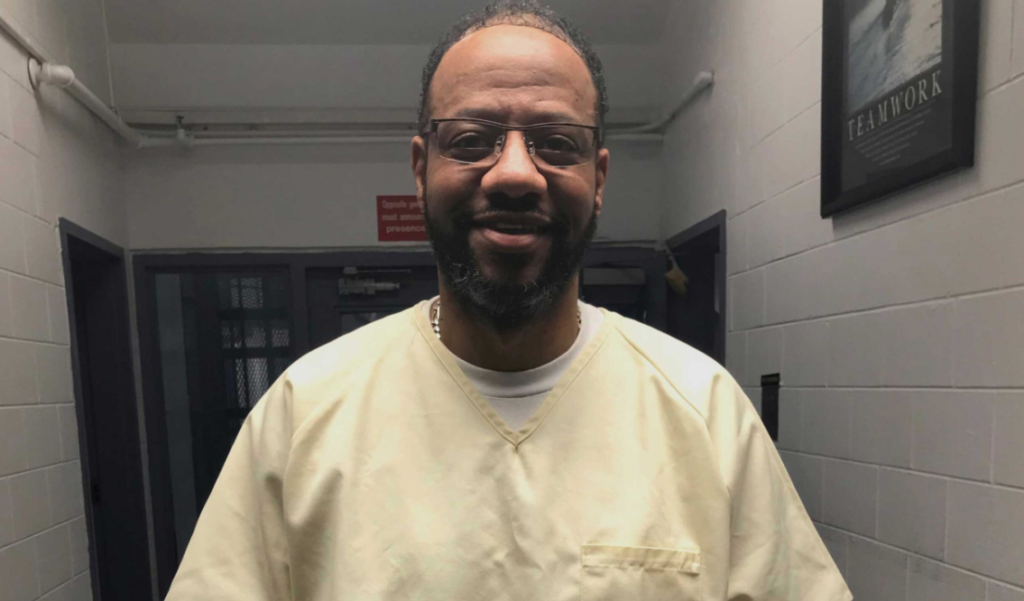
New DNA testing results could stop the execution of a Tennessee man scheduled to die this spring.
DNA from another man appeared on the knife used to stab Charisse Christopher and her two children in their kitchen in 1987, as well as on a pair of glasses found next to them, attorneys told a Memphis judge at a hearing Tuesday morning. Pervis Payne’s lawyers received special permission to analyze never-before-tested evidence from the crime scene in September.
There was not enough DNA left on the items to run it through a federal database to locate another potential suspect. However, Payne’s defense team argues that the presence of someone else’s DNA is enough to cast doubt on their client’s conviction.
“It’s not an exoneration because of the partial DNA,” attorney Kelley Henry said in court Tuesday. “But what I stand by is that it corroborates Pervis Payne’s testimony at trial. There is multiple DNA fragments that do not match Pervis Payne.”
Henry tells WPLN News the testing not only located another man’s DNA on the handle of the knife, but also that it “eliminated” Payne’s DNA. His DNA, she says, was only found on the hilt of the knife, which Payne has repeatedly said that he touched while trying to help the victims.
Payne has maintained his innocence since his arrest for the stabbing, which killed Christopher and her daughter and injured her son. He does not deny that he was in the room where it happened, or even that he touched the victims.
Rather, Payne says he noticed that the door to Christopher’s apartment was open while visiting his girlfriend across the hall. He says he tried to remove the knife from the victim’s body, then ran out when he realized he might be framed by the police.
‘There is nothing that exonerates Pervis Payne’
Prosecutors argued at the hearing Tuesday that the DNA testing does not exclude Payne as a suspect, because his DNA was also found on several items, including part of the knife. They said the results should not change the outcome of his case. Judge Paula Skahan said she also was not convinced that the findings proved his innocence.
“There is nothing that exonerates Pervis Payne that is shown in this lab result,” she said in court.
Payne’s attorneys disagree. They are continuing to work with the Innocence Project to overturn their client’s death sentence. And Henry thinks the DNA results will bolster Payne’s case for clemency.
Payne’s defense has complained of procedural barriers related to the evidence. The lab could only identify partial DNA profiles on several items, including the knife, because the evidence had “degraded” over the years, Henry says. Plus, fingernail scrapings from the scene have disappeared without explanation.
What’s next
Because the DNA results do not exclusively rule Payne out as a suspect, he could still be executed as planned. Payne’s attorneys could also file a motion to reopen the case and argue for Payne’s innocence in court once more. But even if the case never makes its way back to a courtroom, Henry says the findings will be added to an updated petition for clemency with Gov. Bill Lee.
Lee’s office did not immediately respond to a request for comment, though a spokesperson told WPLN News in November that the governor would give the application a “thorough review.” Lee postponed Payne’s December execution date due to the COVID-19 pandemic.
Henry says her team is also supporting a bill proposed in the Tennessee General Assembly that would make it more difficult to execute intellectually disabled individuals who have been sentenced to death, a practice that has been criticized by both the U.S. and state supreme courts. A recent psychological exam found that Payne’s IQ falls right around the cut-off that determines intellectual disability.
Samantha Max is a Report for America corps member.

